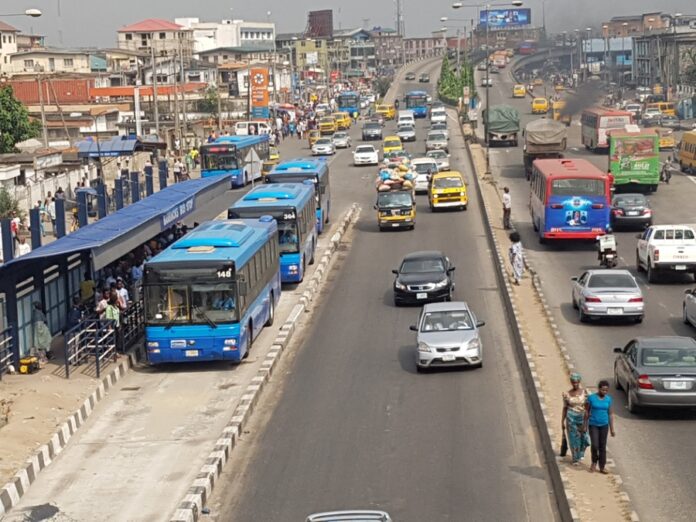A recent study by Nwikpugi, J. B. (2024) titled “Modeling the relationship between infrastructure, urbanization, and poverty dynamics in Nigeria” published in Faculty of Natural and Applied Sciences Journal of Mathematical Modeling and Numerical Simulation, shows that urbanization had a short-term negative effect on economic development by increasing poverty.
“
Urbanization initially reduces poverty but hinders long-term economic development, while telecommunication infrastructure significantly contributes to increased poverty in Nigeria.– Nwikpugi, J. B. 2024
The article provides an in-depth analysis of how infrastructure and urbanization impact poverty dynamics in Nigeria. The research delves into the influence of urbanization and infrastructure development, particularly focusing on roads, electric power, and telecommunication, on poverty levels in Nigeria over a period spanning from 1990 to 2022. The study aims to understand the nuanced effects of these factors on economic conditions and poverty rates within the country. The study reveals a complex relationship between urbanization and poverty. In the short term, urbanization appears to have a positive impact, potentially reducing poverty levels. This could be due to the creation of job opportunities and improved access to services in urban areas. However, in the long run, urbanization is found to impede economic development. This long-term hindrance may result from issues such as overpopulation, strain on urban infrastructure, and inadequate urban planning, which can exacerbate poverty. On the other hand, the study identifies telecommunication infrastructure as a significant factor contributing to poverty. The reasons for this negative impact might include the high costs of telecommunication services and inadequate coverage in rural areas, which can limit economic opportunities and access to information for the impoverished population.
How the Study was Conducted
The study utilized annual time series data from the Central Bank of Nigeria (CBN), the Statistical Bulletin, the World Bank, and the Debt Management Office (DMO) covering the period from 1990 to 2022. Urbanization was represented by the Urban Population Growth (UPG) rate, while infrastructure was denoted by the number of cemented roads (PRD), electric power supply (EPS), and telecommunication infrastructure (TCI). The poverty headcount served as the dependent variable. The series underwent integration at orders zero and one, as determined by an Augmented Dickey-Fuller stationarity test on the variables. The Autoregressive Distributed Lag (ARDL) approach based on bounds cointegration test was used to ascertain the long-term relationship between the variables. The study employed the Aik model to analyze the impact of infrastructure and urbanization on poverty. The ARDL method was used for estimation, ensuring that the estimated model did not depart from the fundamental tenet of the classical least squares. Post-estimation tests were conducted to check for normality, serial correlation, and heteroskedasticity.
What the Authors Found
The author found that urbanization had a short-term negative effect on economic development by increasing poverty. The study also found that the provision of telecommunication infrastructure was identified as the primary cause of poverty.
Why is this Important
Policy Implications: Understanding the impact of infrastructure and urbanization on poverty dynamics informs policy decisions. Policymakers can use these insights to design targeted interventions that address poverty effectively.
Sustainable Development Goals (SDGs): The study aligns with SDG 1 (No Poverty) and SDG 9 (Industry, Innovation, and Infrastructure). By identifying the role of infrastructure in poverty reduction, it contributes to global efforts to eradicate poverty and promote sustainable development.
Investment Priorities: The recommendation to enhance road infrastructure, telecommunication facilities, and electric power supply highlights areas where investment is needed. Allocating resources strategically can lead to positive economic outcomes.
Long-Term Planning: Recognizing the short-term negative impact of urbanization on poverty emphasizes the need for long-term planning. Balancing urbanization with poverty reduction efforts is essential for sustainable development.
What the Authors Recommend
- The author suggests that investing in better road networks can improve connectivity, facilitate trade, and enhance economic growth. This includes both urban and rural roads.
- The author also recommends that strengthening telecommunication infrastructure can boost access to information, e-commerce, and digital services. It plays a crucial role in poverty reduction.
- The author advocates access to reliable electricity is essential for economic activities, education, and healthcare. Efforts should focus on expanding and stabilizing the power grid.
- In addition, the study argues that while urbanization can contribute to economic growth, policymakers should manage it carefully to avoid short-term negative effects on poverty. Balancing urban development with poverty reduction efforts is crucial.
In conclusion, the study by Nwikpugi (2024) provides crucial insights into the intricate relationship between infrastructure, urbanization, and poverty dynamics in Nigeria. By highlighting both the short-term and long-term impacts of urbanization and the pivotal role of infrastructure development, particularly in roads, electric power, and telecommunication, this research offers valuable guidance for policymakers. To achieve sustainable economic growth and effectively reduce poverty, strategic investments and careful urban planning are essential. These findings underscore the importance of targeted interventions and long-term planning to balance the benefits of urbanization with the goal of poverty alleviation, aligning with broader sustainable development objectives.
















 The African Research (AR) Index is a comprehensive scholarly directory and database focused explicitly on journal publishers that publish and disseminate African research.
The African Research (AR) Index is a comprehensive scholarly directory and database focused explicitly on journal publishers that publish and disseminate African research.

